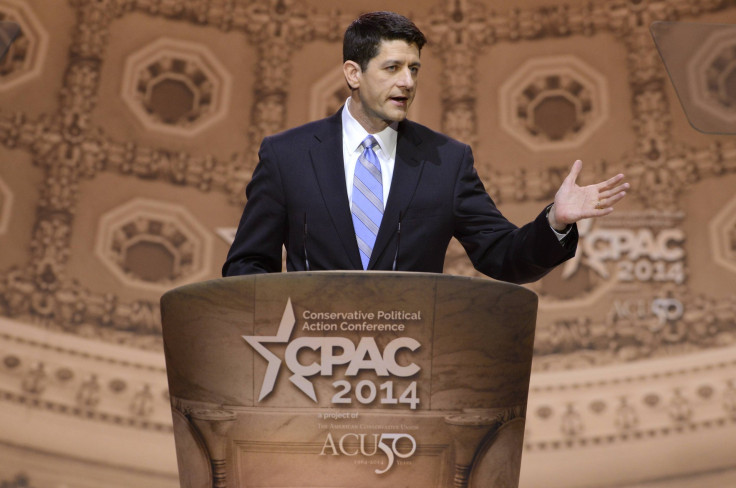Paul Ryan Says Poor Children Shouldn't Get Free School Lunches In Plagiarized Story At CPAC

Rep. Paul Ryan (R-Wisc.) apparently doesn’t believe the government should give poor children free school lunches, and he used a possibly plagiarized story to make his point.
Speaking at the Conservative Political Action Conference on Thursday, Ryan told a story that he credited to his friend Eloise Anderson, secretary of the Wisconsin Department of Children and Families. Ryan says that Anderson once met a poor child who told her that he didn’t want a government-provided free lunch, he wanted one from his parents:
She once met a young boy from a poor family. And every day at school, he would get a free lunch from a government program. But he told Eloise he didn’t want a free lunch. He wanted his own lunch -- one in a brown-paper bag just like the other kids’. He wanted one, he said, because he knew a kid with a brown-paper bag had someone who cared for him.
According to Ryan, this is proof that liberal programs are leaving Americans with “a full stomach and an empty soul.” But there are problems with Ryan’s story beyond the implication that poor children shouldn’t get school lunches: His story is likely plagiarized and almost certainly fake.
As Wonkette and New York Magazine note, Ryan’s story bears a striking, if distorted, similarity to a story in the book “An Invisible Thread.” In the story, a New York schoolteacher offers to buy a panhandling student lunch, and he insists that it has to come in a brown paper bag, because all the other children with lunches in brown paper bags have parents who love them. It’s not a condemnation of giving children free lunches -- it’s a reminder to give generously to people in need.
It appears that as distorted as Ryan’s story was, however, he wasn’t the one doing the twisting. N.Y. Mag points out that Ryan likely did hear the story from Anderson, who delivered almost the exact same story in a congressional hearing last July. Anderson instead that the story had happened to her personally and used the fictional encounter to claim that “we need to be very careful about how we provide programs to families that don't undermine families' responsibilities.” It seems unlikely that Anderson would have met a child with this exact same story. What's more likely is that Anderson lifted the story to make her point and Ryan liked it enough to reuse it.
Ryan’s story may be plagiarized, but it appears to be an accident on his part. Watch it below.
© Copyright IBTimes 2024. All rights reserved.





















